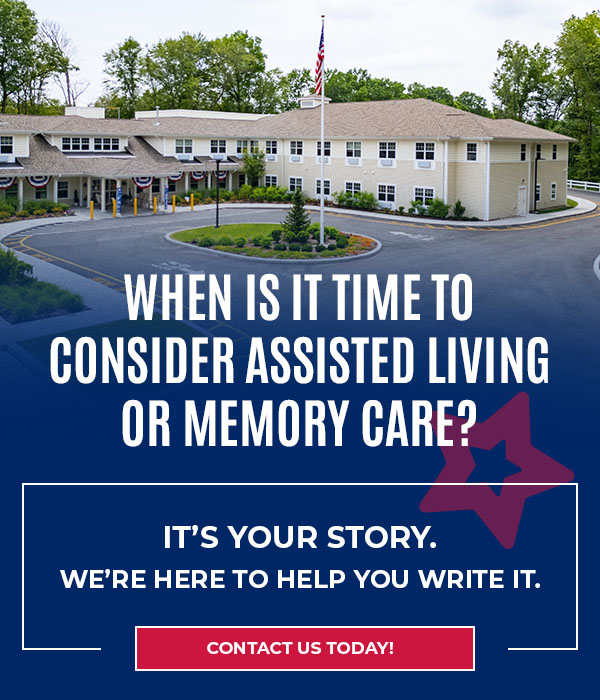Dealing with conditions like dementia and Alzheimer’s can pose unique challenges, especially regarding memory loss. When caring for an aging loved one experiencing cognitive decline, adapting your communication approach is crucial. A proactive approach can strengthen your relationship with them and provide comfort and support.
While short-term memory loss can be challenging, you can foster meaningful conversations by keeping these points in mind:
- Remove Distractions
- Practice Patience
- Keep It Simple
- Prioritize Positivity
- Don’t Take It Personally
Let’s look at these methods to help you maintain a strong connection with loved ones experiencing short-term memory loss.
Remove Distractions
Communication is about much more than spoken words, especially when dealing with memory loss. The environment plays a significant role in the success of your conversations. Distractions such as loud noises, flashing lights, or visual clutter can disrupt the flow of conversation and make it difficult for your loved one to focus.
Make sure you’re in a quiet, comfortable place without any clear distractions to foster better engagement and facilitate smoother conversations. Try to:
- Turn off Electronics: Minimize background noise and potential interruptions.
- Choose a Quiet Area: Find a calm, peaceful space for your conversation.
- Sit Face-to-Face: Maintain eye contact and focus on the person.
These help to create a conducive environment for smoother, more engaging conversations.
Practice Patience
Patience is key when communicating with someone experiencing short-term memory loss. Understand that your loved one may need extra time to process information and respond to questions. Rushing the conversation will quickly lead to frustration for both parties.
Avoid interrupting or finishing their sentences, and give them time to express themselves, even if they need to pause. Show support and love by staying calm and composed throughout the interaction.
Exhibiting genuine interest and empathy through body language and facial expressions can make a big difference, providing your loved one with a safe space to communicate in a way that makes sense to them.
Keep It Simple
We’re all guilty of being unclear at times, even for people without cognitive impairments. But when memory loss is a factor, it’s essential to be extra careful. Complex language and sentence patterns can derail conversations, causing more confusion than necessary.
Make a point to keep your language simple. Don’t use jargon, and stay focused on one point at a time. Being straightforward is key here; don’t overwhelm them with too much information at once.
- Use Simple Language: Avoid jargon and complicated phrases.
- Focus on One Topic: Stick to one subject at a time to avoid overwhelming them.
- Reinforce Key Points: Repeat important information to help retention.
Repetition can be helpful, so repeat any key points or important information you need to get across. This reinforcement can aid in retention and remind them of where they are in the conversation.

Prioritize Positivity
Maintaining a positive and upbeat attitude can significantly affect your conversations. Even if it’s difficult, focus on showing positive reinforcement throughout the conversation.
This approach boosts your loved one’s confidence and encourages them to contribute more to the conversation. Celebrate small achievements and gently guide them back to the topic at hand if they get distracted.
Focusing on positive aspects rather than mistakes creates a more enjoyable conversation and strengthens your relationship through positive affirmation.
Don’t Take It Personally
Memory loss, whether due to age-related changes or medical conditions, can be frustrating, especially for your loved one. Remember, their condition is not a reflection of your relationship or their feelings toward you. It’s essential to recognize that their memory loss results from cognitive changes rather than a conscious effort to ignore you.
Try to keep your perspective in check, and if things become overwhelming, it’s okay to step back and regroup. Acknowledge your own feelings and needs as valid, and remember that there are resources available to help you through this.
This mindset is excellent for maintaining your mental health and composure during interactions, helping you provide empathetic support.
Let Us Help
At All American Assisted Living at Enfield, we understand the complexities of memory loss. Our experienced caregivers are here to support you and your loved one through this journey.
Schedule a tour of our community to discover how we can make a difference. Let’s work together to create a nurturing environment where your loved one feels valued, supported, and loved-regardless of memory loss.
Contact us today to learn more about our memory care services and how we can help your family.





